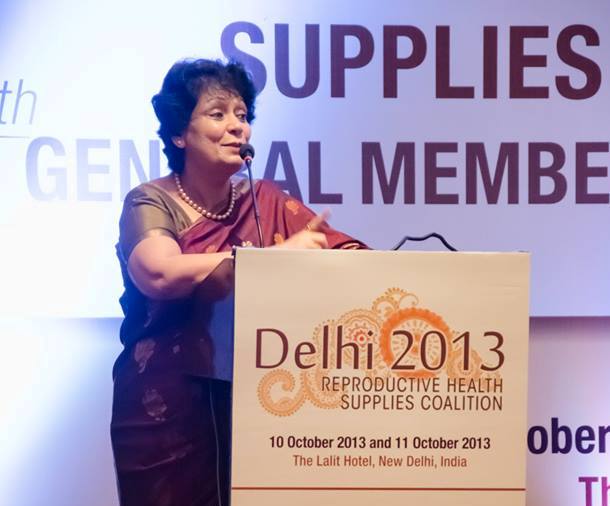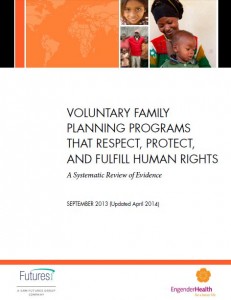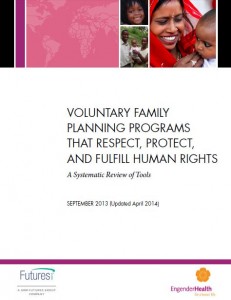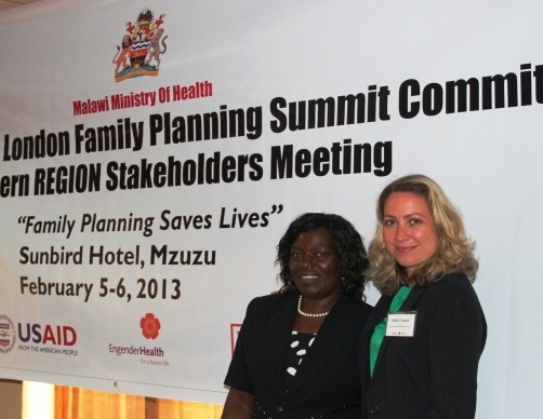How can public health programs oriented toward increasing family planning access and use ensure they reach as many people as possible with lifesaving contraception in a way that respects, protects, and fulfills human rights?
Today, the Futures Group and EngenderHealth launched a joint publication, Voluntary Family Planning Programs that Respect, Protect, and Fulfill Human Rights: A Conceptual Framework that presents a new framework for holistic, quality family planning (FP) programs with clients and their rights at the core. This practical framework integrates human rights law and principles with FP program and quality of care frameworks, and depicts how key concepts translate into concrete interventions, outputs, and outcomes into programming. It offers a pathway for governments and other implementing partners to fulfill their commitments to the provision of voluntary FP services that respect, protect, and fulfill individuals’ human rights as programs pursue health and development goals.
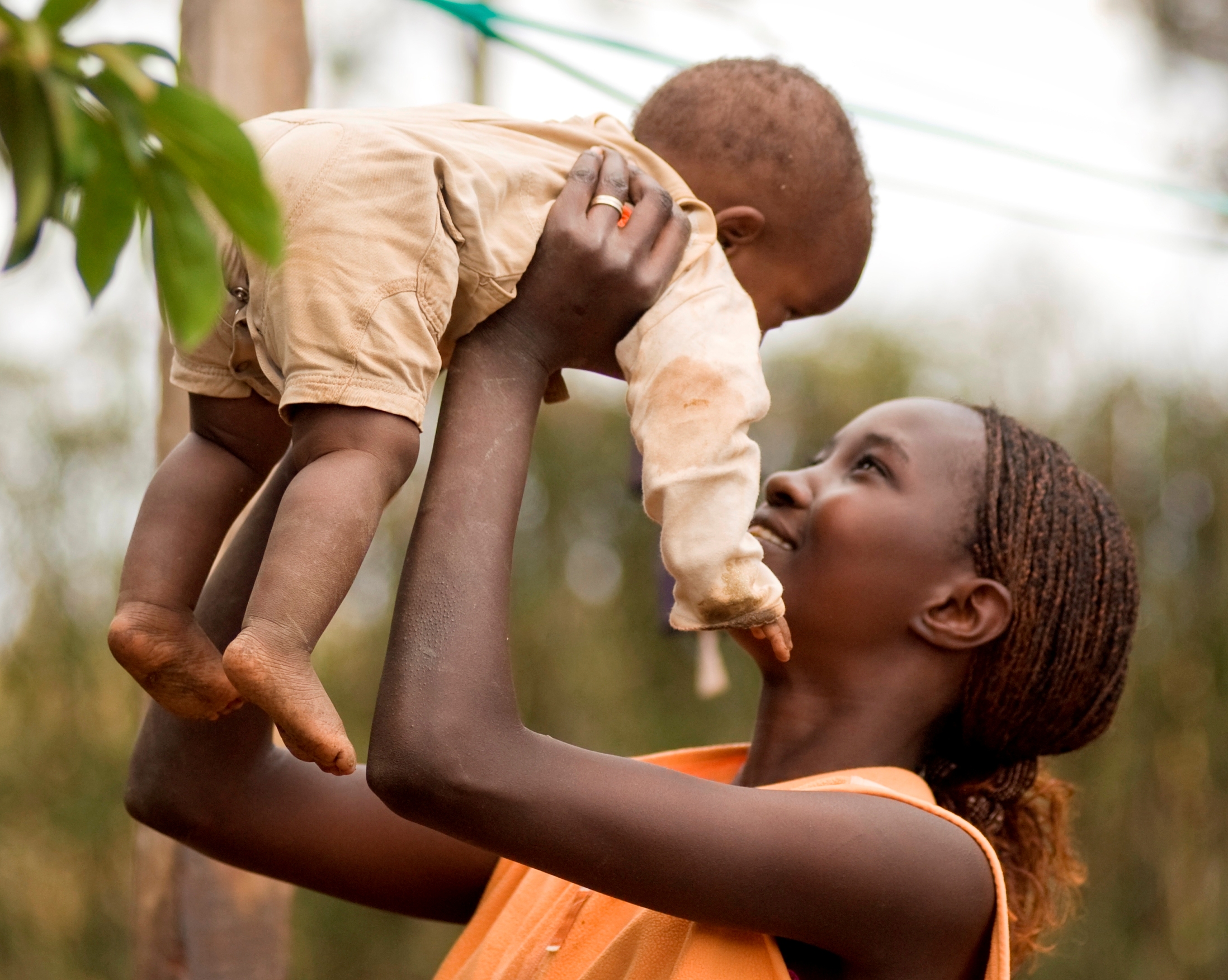
A mother and child in Mwea Village, Kenya. Photo credit: The Bill & Melinda Gates Foundation
“In the wake of the London Summit on Family Planning, we have seen a reenergized commitment among governments and donors to expand access to FP, especially under the FP2020 initiative,” said Jan Kumar, Senior Technical Advisor at EngenderHealth and one of the framework’s authors. “As this framework highlights, however, it is critical that any efforts to scale up family planning over the next decade must be met by equal attention to ensuring that programs respect, protect, and fulfill human rights and put clients’ needs and preferences at their core.”
Continue reading →
